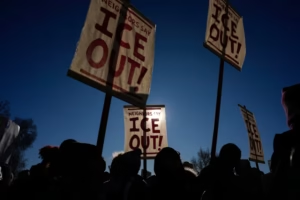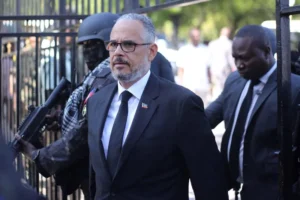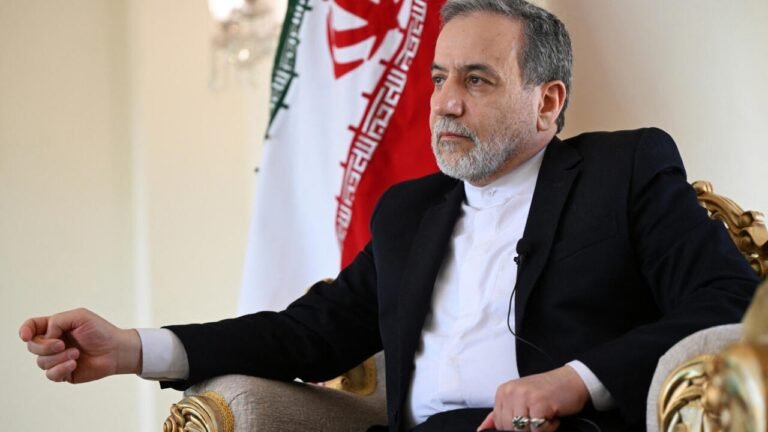Iran and France are reportedly nearing an agreement on a prisoner exchange that could include the release of an Iranian woman detained in France over her online posts linked to the Gaza conflict.
Iran’s Foreign Minister Abbas Araghchi said late Thursday that Mahdieh Esfandiari is expected to be freed as part of the swap, which he hopes will occur “in the coming days.”
Esfandiari, a translator who has lived in Lyon since 2018, was arrested in February on charges related to terrorism for posts she allegedly made on Telegram regarding the Oct. 7, 2023, Hamas attacks on Israel, which triggered the ongoing Gaza war. French media reports describe her posts as the basis for the terror-related allegations.
Araghchi did not provide details about any French prisoners who might be released to Iran as part of the exchange. However, France has long sought the release of two citizens held in Iran on espionage suspicions. Cécile Kohler and Jacques Paris have been detained since May 2022.
French Foreign Minister Jean-Noël Barrot declined to comment directly on Araghchi’s statements. Speaking on France Inter radio Friday, he said the French government “consistently demands the release of its citizens in Iran” and emphasized that the issue is a “sensitive subject of great seriousness.”
Human rights groups have accused Iran of using Western detainees as bargaining chips in international negotiations. Tehran denies this, stating that Esfandiari’s arrest in France was solely related to her support for Palestinians, not as leverage in talks with European nations.
The potential swap comes amid heightened tensions over Iran’s nuclear program. In late August, France, alongside Britain and Germany, triggered the “snapback mechanism,” which automatically reinstates U.N. sanctions on Iran. Officials cited Iran’s willful departure from the 2015 nuclear deal that had previously lifted these measures.
Analysts say the prisoner exchange could serve as a limited diplomatic breakthrough at a time when Iran’s relations with European nations are strained. It may also provide a rare avenue for progress despite the broader disagreements over sanctions and nuclear compliance.
No official timeline has been announced, but Araghchi’s remarks suggest that negotiations are in advanced stages. Both governments are reportedly coordinating behind the scenes to ensure the process moves swiftly and safely.
If completed, the exchange could mark a significant step in easing tensions between Iran and France while drawing international attention to the ongoing use of detention in high-stakes diplomatic conflicts. Observers are watching closely to see whether France will secure the release of Kohler and Paris as part of the deal.
The case highlights the delicate balance European governments must navigate between enforcing legal standards and managing geopolitical negotiations with Iran, a country under increasing scrutiny for its nuclear ambitions and regional actions.







